|
Al Norte in a Pink Cadillac
Oil on Canvas 36 x 36 inches Many years ago, I began writing a series of "mini" vignettes about my family’s migration north from Mexico City to Kankakee, Illinois. These narratives are based on my childhood memories of that journey north, our arrival, and my early life as an immigrant child in the USA. As with many of my paintings, the narrative came first, then a collage that I created using deconstructed photos and images from our 1959 family passport, and finally, this painting. This piece is in Arte Diseño Xicago II: From the World’s Fair to the Present Day exhibit through August 11, 2024. The exhibit is curated by Cesáreo Moreno, Director of Visual Arts & Chief Curator of the National Museum of Mexican Art in Chicago.on exhibit at the National Museum of Mexican Art in Chicago. "This exhibition will showcase some of the works of art by Mexican and Chicago artists who participated in the 1893 World's Columbian Exposition and will examine their similar narratives of identity during the Gilded Age. The intentions during Mexico’s Porfiriato era were not unlike those of Chicago’s leaders, twenty-two years after the Great Fire: both realized the World’s Fair was an opportunity to parade on a global stage and be recognized as a modern, culturally rich society, worthy of tribute and investment. The fine arts displayed at the “White City” fairgrounds was one way this narrative was proudly expressed. National identities were on display, painted through landscapes and scenes of a romanticized history along with notions of industry, modernism, and progress in the Americas. Many of the ideals set forth at the World's Columbian Exposition set a path for the 20th century Modern Era.
The second part of the exhibition will display present-day Mexican artists working in the Chicagoland area. Their artwork depicts contemporary ideas of identity, innovation, or Midwest expressions from a Mexican point of view – though many have been in Chicago since childhood. This section will illustrate how our immigrant city of neighborhoods fostered a creative spirit for many who made their home in the urban Midwest. The exhibition is part of Art Design Chicago, a citywide collaboration initiated by the Terra Foundation for American Art that highlights the Chicago’s artistic heritage and creative communities." Curated by Cesáreo Moreno Artists: Pilar Acevedo (b. 1954, CDMX) Cleofas Almanza (1850–1916) Enella Benedict (1858–1942) Carmen Chami (b. 1974, CDMX) Juan Ángel Chávez (b. 1971, CHI) Javier Chavira (b. 1971, SLP) Héctor Duarte (b. 1952, MICH) Daniel Folger Bigelow (1823–1910) Charles E. Boutwood (1860–1937) Charles Francis Browne (1859–1920) Luis Coto (1830–1891) Oliver Dennett Grover (1861–1927) Gabriel Guerra (1847–1893) Lydia Purdy Hess (1866–1936) Pilar de la Hidalga García (1843–1901) Angélica Icaza (1819–ca.1900) Leandro Izaguirre (1867–1941) José María Jara (1867–1939) Salvador Jiménez-Flores (b. 1985, JAL) Rodrigo Lara Zendejas (b. 1981, EDO) José María Obregón (1832–1902) Cristino Ramírez (GTO) Marcos Raya (b. 1948, GTO) Lorado Zadok Taft (1860–1936) Alice Kellogg Tyler (1862–1900) Adrián Unzueta (1865–1919) Georgina Valverde (b. 1962, CDMX) John H. Vanderpoel (1857–1911) José María Velasco (1840–1912) Sponsors: Chicago Park District Illinois Arts Council The Gelman Foundation Mex-Am Cultural Foundation The above text is from the National Museum of Mexican Art's website. I am pleased to announce that this piece is now in Kankakee Community College's private collection. This painting is based on a collage that I created years ago following a visit to Mexico City where I came across an image of “El Santo Niño de las Suertes” (The Holy Child of Blessings). According to the legend, dating back to the early 19th century, two missionaries were on their way to Tlalpan (a suburb of Mexico City). As they approached their destination, they heard a child’s cries. Intrigued and surprised because the area was not inhabited, they searched the place where they heard the sounds and found a child who was barely four months old. Upon picking him up, the child turned to stone, and simultaneously, a spring began to flow from the ground. This spring is called "Ojo del Niño" (Eye of the Child) and can be found in present-day Tlapan.
Coincidentally, I chose water as part of the collage although I was unfamiliar with the legend until I completed the piece. In fact, I used the image of the cranes on the water to simply convey serenity—the fish and the bright pink color of the skull, whimsy—I did all in memory of a departed friend. Still Wish You Were Here Oil on Canvas 48 x 30 inches More happy news! I will have a piece, titled Al Norte in a Pink Cadillac in the Arte Diseño Xicago II: From the World’s Fair to the Present Day exhibit which will open on April 12, 2024 and run through August 11, 2024. The exhibit is curated by Cesáreo Moreno, Director of Visual Arts & Chief Curator of the National Museum of Mexican Art in Chicago. As stated in a newsletter from the National Museum of Mexican Art, "the exhibition is part of Art Design Chicago, a citywide collaboration initiated by the Terra Foundation for American Art that highlights Chicago’s artistic heritage and creative communities. Arte Diseño Xicágo II – From the World’s Fair to the Present Day is funded by: Art Design Chicago, Terra Foundation, Chicago Park District, Illinois Arts Council, and The Gelman Foundation." The following is a description of the exhibit which is posted on the Art Design Chicago website: "This exhibition examines the 1893 World’s Fair as a platform for expressions of cultural identity and reveals how many Chicago and Mexican artists had similar objectives. The exhibition features 19th-century works of art from both Chicago and Mexico by some of the leading artists participating in the World’s Fair, along with contemporary artworks by Mexican-born, Chicago-based artists whose art reflects their transnational experiences. Al Norte in a Pink Cadillac
Oil on Canvas 36 x 36 inches Many years ago, I began writing a series of "mini" vignettes about my family’s migration north from Mexico City to Kankakee, Illinois. These narratives are based on my childhood memories of that journey north, our arrival, and my early life as an immigrant child in the USA. As with many of my paintings, the narrative came first, then a collage that I created using deconstructed photos and images from our 1959 family passport, and finally, this painting. The National Museum of Mexican Art's 37th annual exhibit titled Día de Muertos, Living Presence is now open. These are a few photos of the large floral installation curated by Dolores Mercado, associate curator, which memorializes women around the world who were "violated, disappeared or murdered". I am pleased to be one of 18 artists participating in the creation of this installation. We were each given a composite board flower measuring 30" x 30" and asked to create a piece regarding a group of women or an individual woman who was a victim of gender-based violence. My piece titled She Was Banaz, was created in memory of Banaz Mahmod, a 20-year-old Iraqi Kurdish woman, who lived in South London, England prior to her murder. She was a victim of an honor killing that her father and uncle planned and her three cousins carried out; all were later convicted of her murder as a result of the testimony of Bekahl Mahmod, Banaz's older sister. For those of you who are not familiar with her story, I encourage you to watch the 2013 Emmy and Peabody Award winning film Banaz: A Love Story. As I painted the flower, I wrote a poem that is an integral part of the piece. It was inspired by Banaz’s story from articles I read and interviews I watched in Banaz: A Love Story. The poem retells her story as if Banaz were speaking to her older sister, Bekahl. The words used to describe Banaz's husband, father, uncle and cousins are not Banaz’s—she was a gentle spirit who, in the film, did not express herself harshly. I employed excerpts that were vocalized in the film, i.e., Banaz stated about her husband, “It was like I was his shoe and he would wear it just whenever he felt like it”. I also utilized "discharged my soul" because one of her cousins complained, "...the bitch's soul was not getting discharged...". And finally, I titled the poem "Orange and Yellow" because in an interview from the film, her sister, Bekhal, said about Banaz, “If she was in my life, my life would be orange and yellow”. In my flower, Banaz is the pistil—the central female organ of a flower and she is depicted in a fetal position as she was found in the suitcase in which she was buried. The pistil is orange and yellow because of what Bekahl said her life would be like if Banaz were in it. Orange and Yellow Pilar Acevedo Written 07/13/2023 If only I could have colored your life orange and yellow, sweet sister. But some disregarded my desperate pleas; others fueled their fierce ire and compelled our cousins to “discharge my soul”-- the price I paid for parting ways from a contemptuous cretin who controlled me with a fist and phallus. To him, I was not a winsome wife, but a shoe to wear when he wanted. And so, I ran for refuge-- to the two who divined me, yet wanted me dead. Their honor, more valuable than valor and I. Thus, the unimaginable unfolded. Our father and uncle demanded my demise. Our cowardly cousins complied, but with an added touch of torture-- they raped and garroted me. When they finished their demonic deed, they dumped my vacant vessel in a suitcase, and buried it in our backyard. Now, I sleep as soundly as a floating fetus in a warm womb of orange and yellow and dream of you, dear sister. I dream of what could have been and of a love that should have been. And if I could borrow the wind to whisper in your ear, I would softly say, thank you, sweet sister, for seeking justice for me. But now, it is time to release the rage and rancor and make your life orange and yellow. This is one of Chicago's most popular exhibits and truly a wonderful cultural experience. As always, there are ofrendas as well as a variety of visual art pertaining to Day of the Dead. The following pictures are of a few pieces in the exhibit. I have also included 2 beautiful murals that are painted at the entrance and the exit of the exhibit. You will note that the Xoloitzcuintli dog, painted at the exit, played a role in Pre-Columbian life. Besides being a companion to the Aztec and Maya, this dog was also a healer and most important, a guide to the Underworld. Día de Muertos, Living Presence will be on exhibit through December 10, 2023. National Museum of Mexican Art, 1852 W 19th Street Chicago, IL 60608. Also, don't forget to enjoy the murals in Pilsen. These are across from the museum, but there are so many others throughout this community.
5000 honour killings internationally per year. 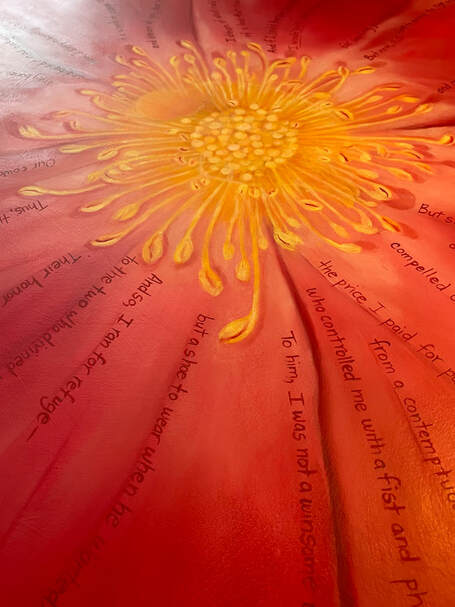 The image is a peek at the flower I painted in memory of Banaz Mahmod, a 20-year-old Iraqi Kurdish woman, who lived in South London, England prior to her murder. She was a victim of an honor killing that her father and uncle planned and her three cousins carried out. These perpetrators were later convicted of her murder and in prison. This piece titled She Was Banaz, will be part of a large installation that will “memorialize women around the world who have been violated, disappeared, or murdered”. Dolores Mercado, Assistant Curator, organized the installation, which will be part of the National Museum of Mexican Art's exhibit titled Día de Muertos, Living Presence; it is the museum's 37th annual Day of the Dead exhibition . The opening will be Friday, September 22nd from 6:00pm–8:00pm. It's a very popular exhibit and as always, a wonderful cultural experience. There will be traditional ofrendas as well as a variety of visual art pertaining to Day of the Dead. Día de Muertos, Living Presence September 22-December 10, 2023. National Museum of Mexican Art 1852 W 19th Street Chicago, IL 60608 The National Museum of Mexican Art is pleased to announce the opening of its 37th annual Day of the Dead exhibition on Friday, September 22nd in the Main Gallery. Entitled Día de Muertos, Living Presence, this year’s exhibition remembers the thousands of people who died in the February 2023 earthquakes in Turkey and Syria. The exhibition will also memorialize women around the world who have been violated, disappeared, or murdered, with a large installation by eighteen local artists. With flowers, food, and drinks, we await the return home of loved ones who no longer walk this Earth. Join us for the opening reception on Friday, September 22nd to experience this age-old tradition of honoring the lives of lost loved ones through captivating altars, beautiful folk art, and evocative fine art. I am grateful and honored to be one of the eighteen artists whose work will be included in the large installation mentioned above.
|
Archives
July 2024
Categories
All
|
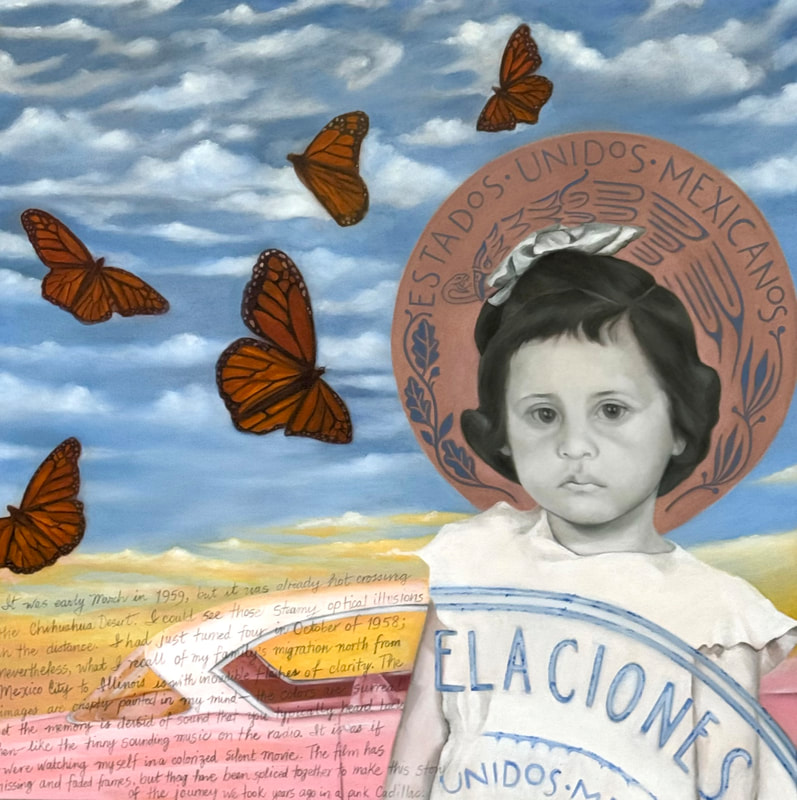
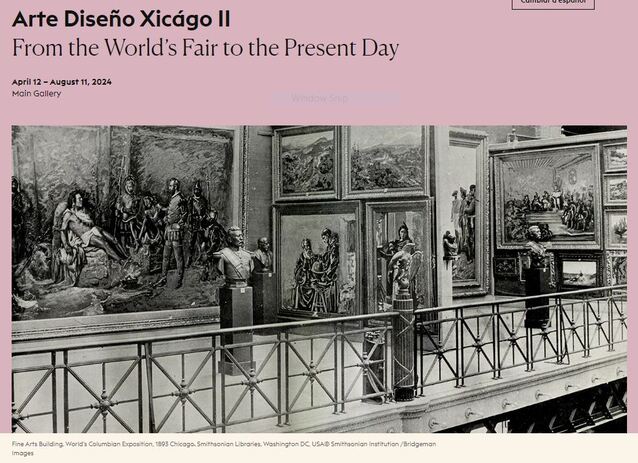
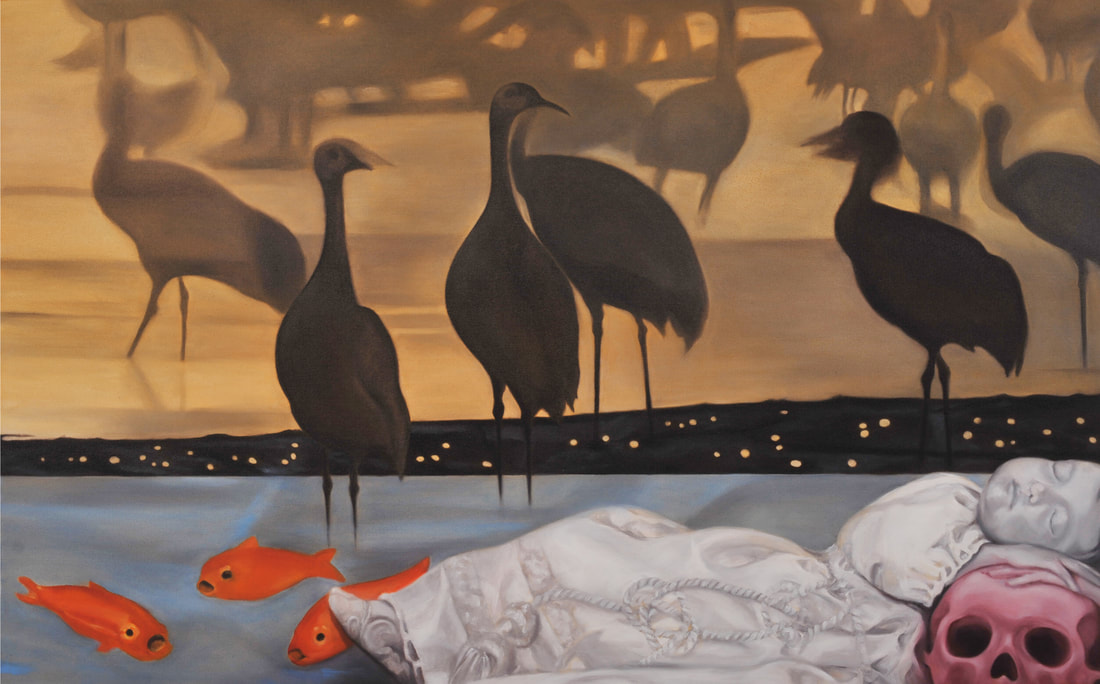
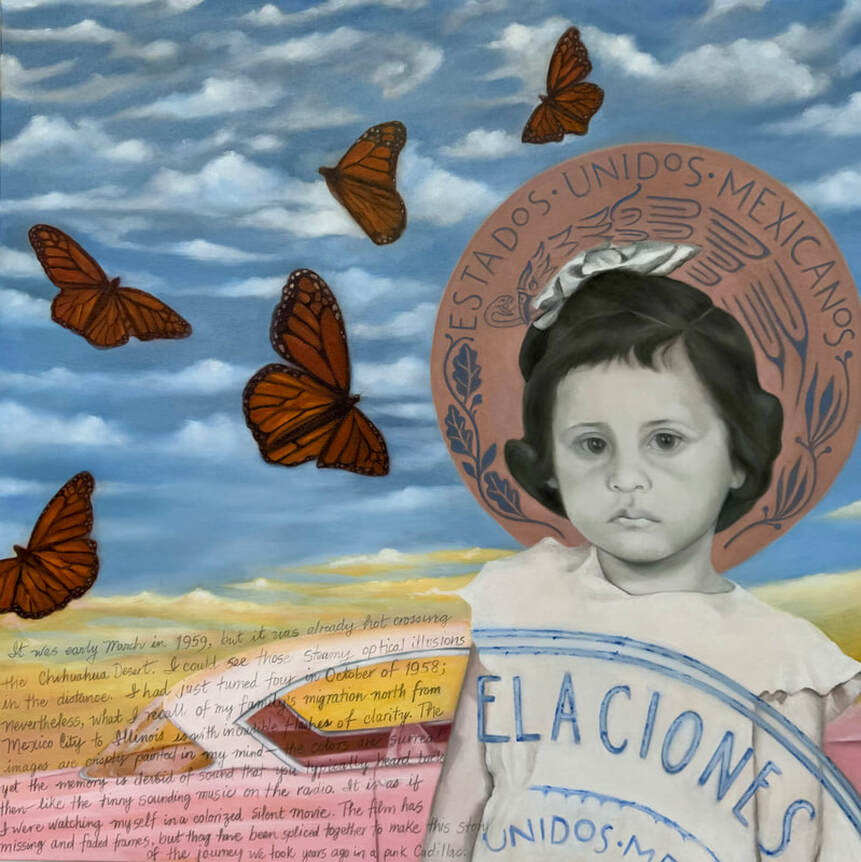
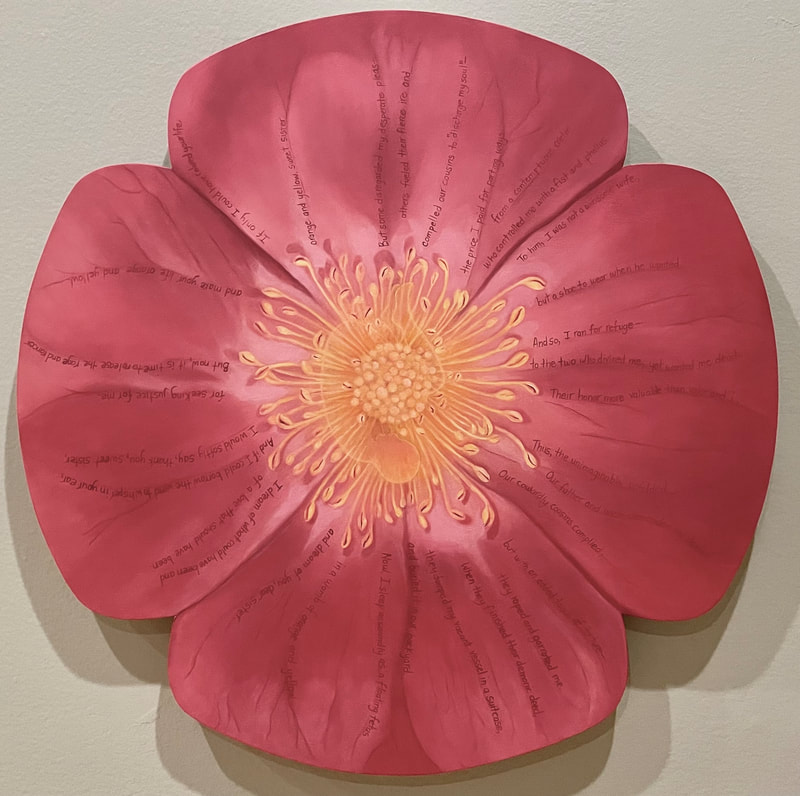
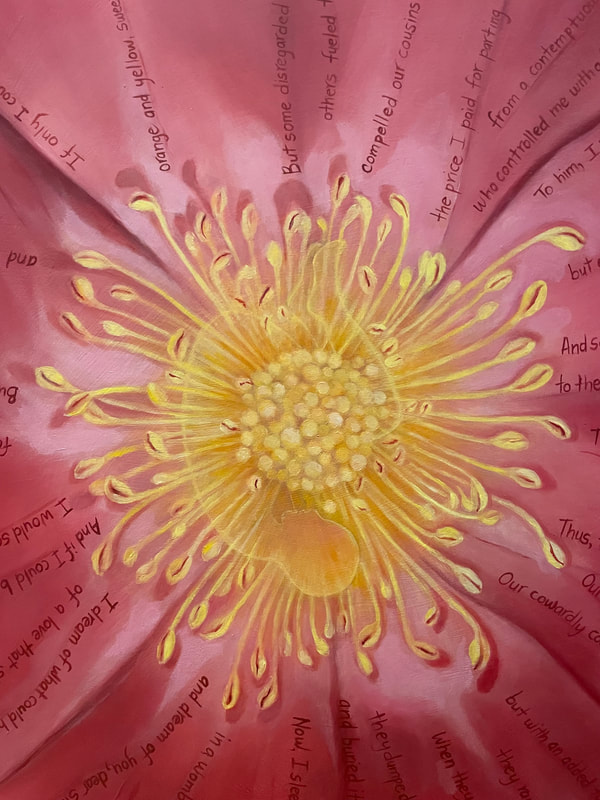
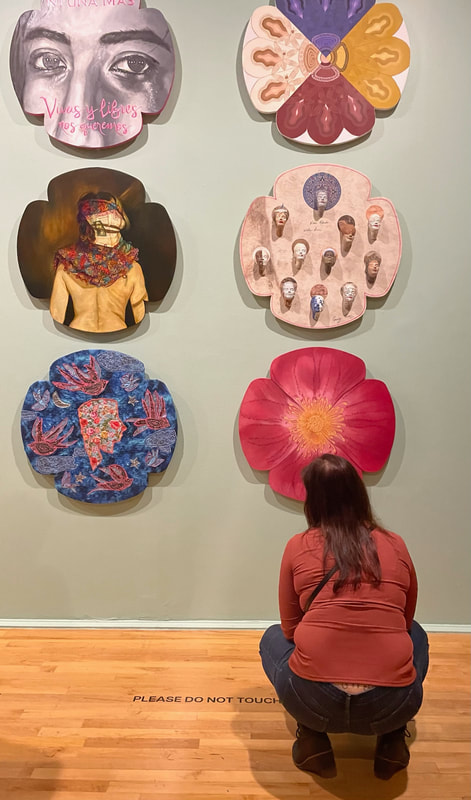
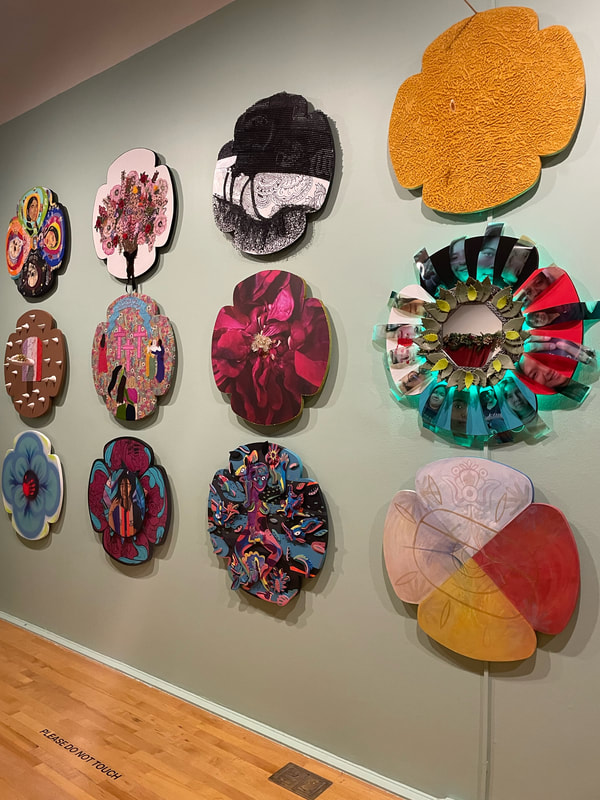
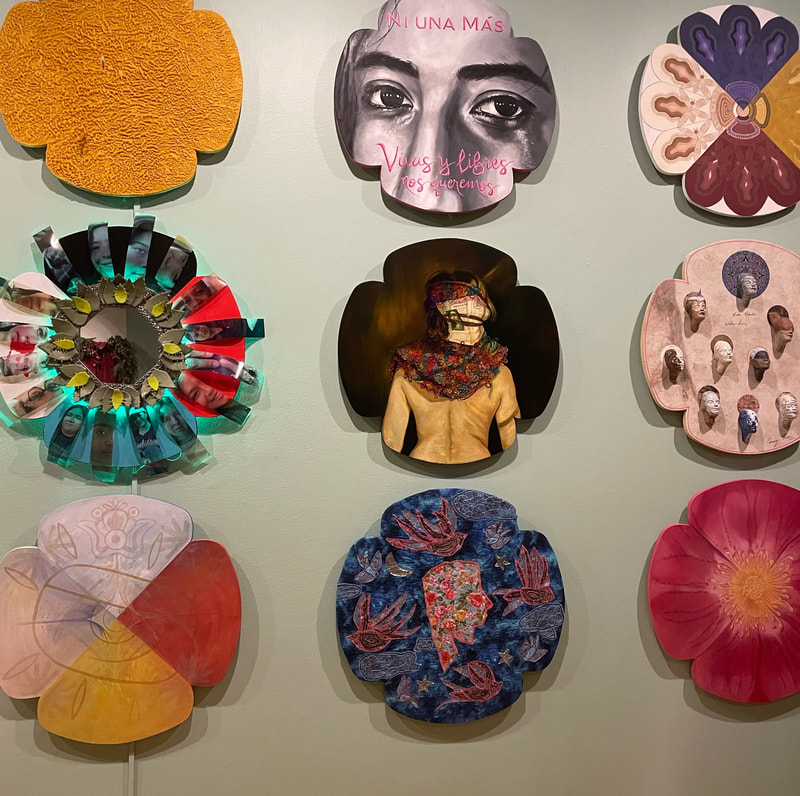
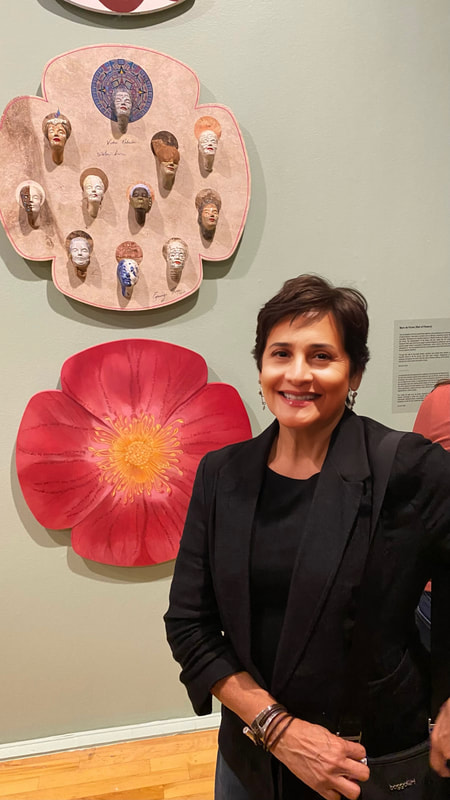
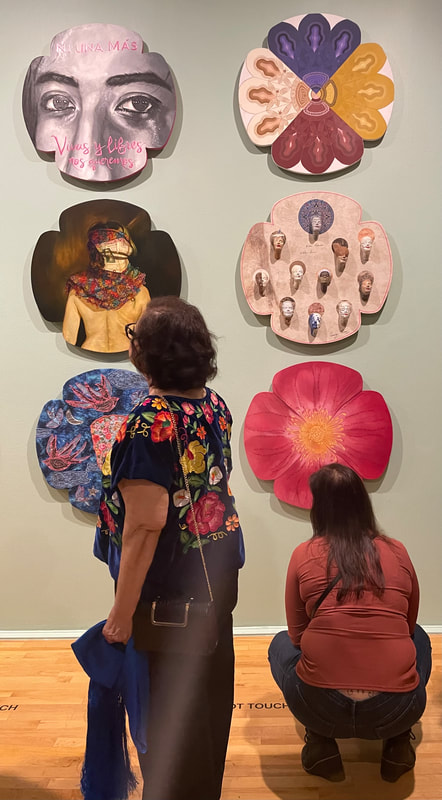
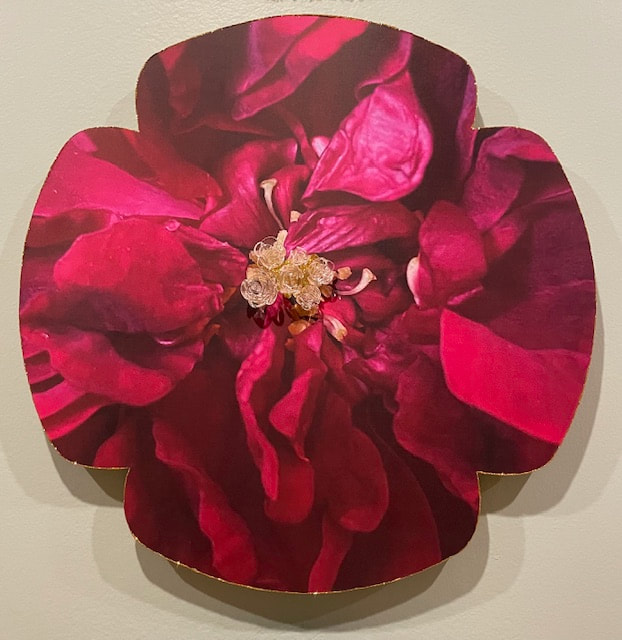
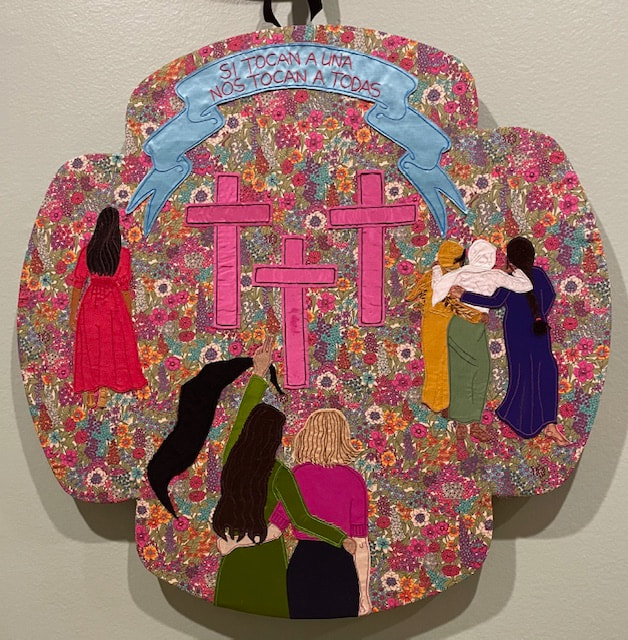
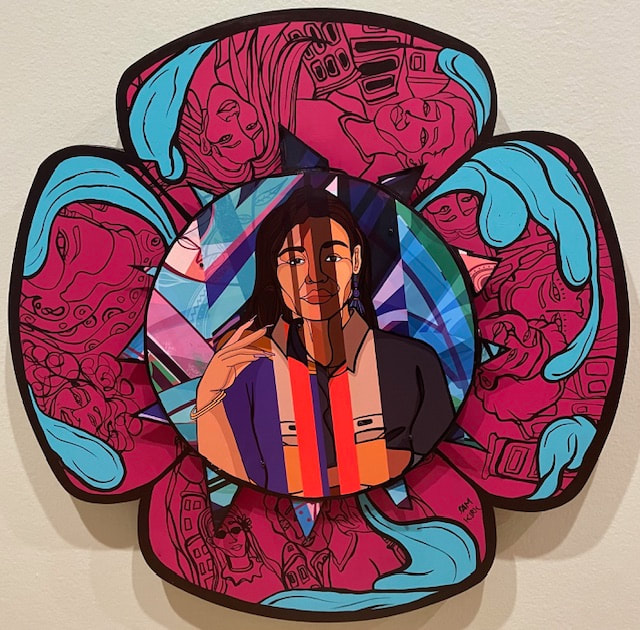
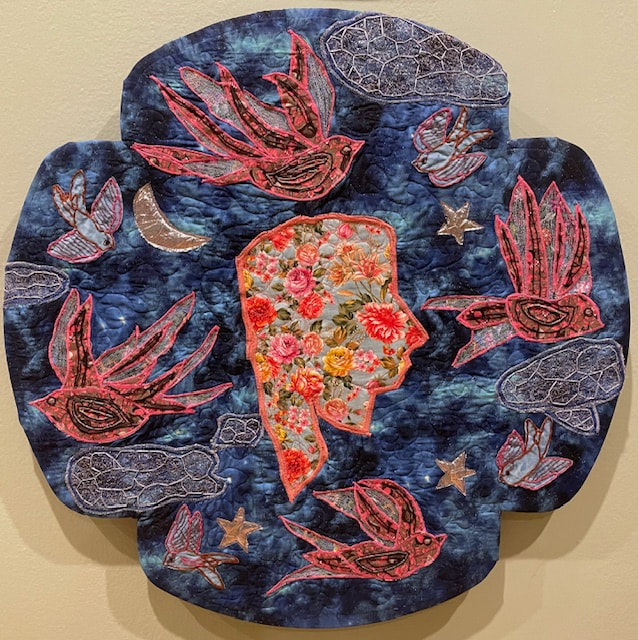
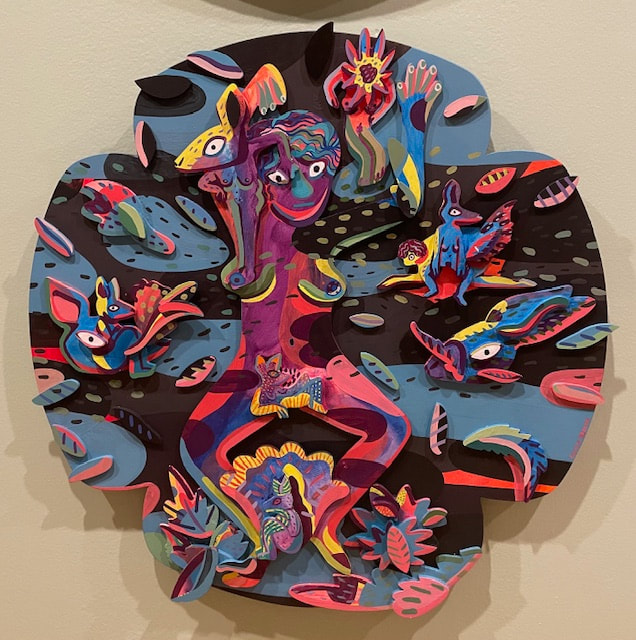
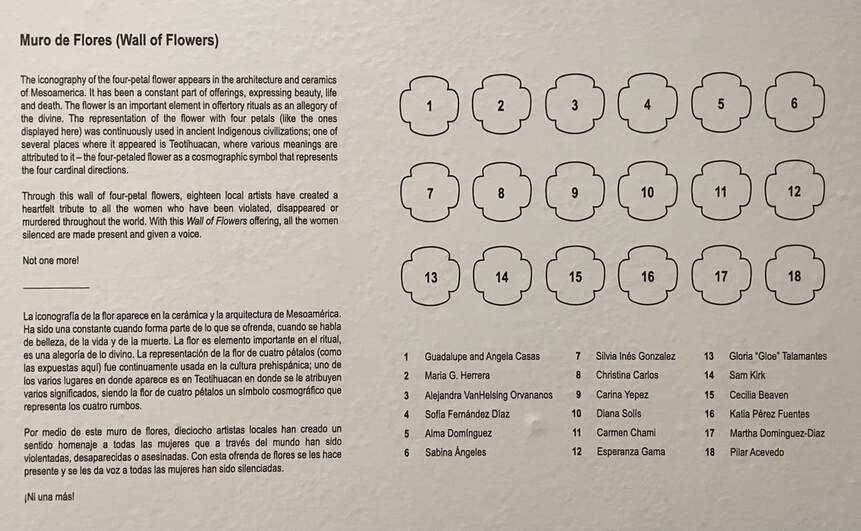
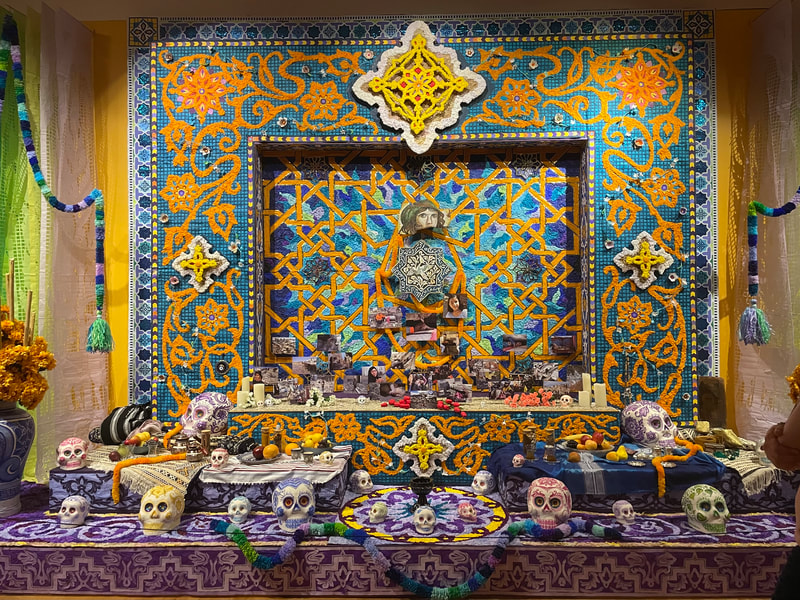
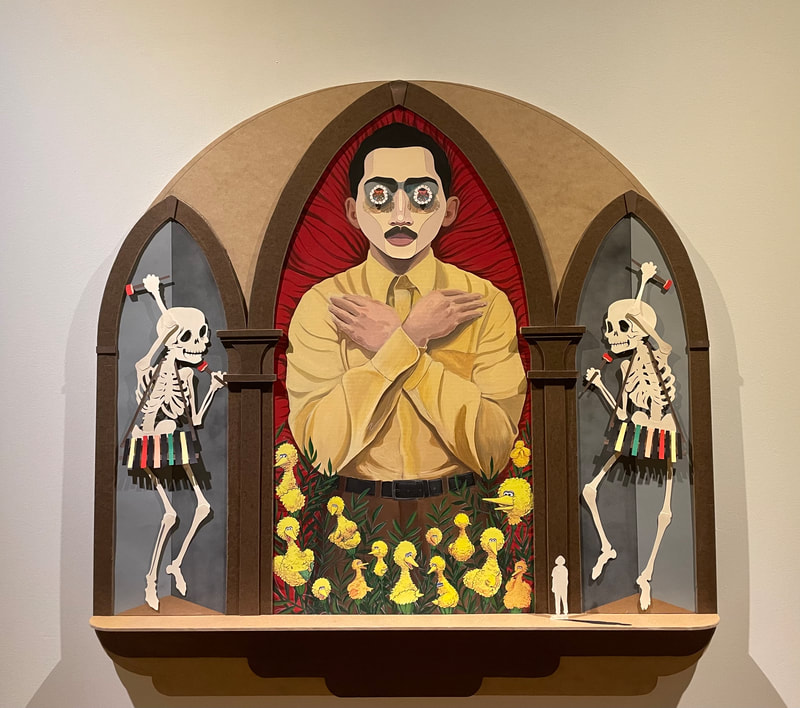
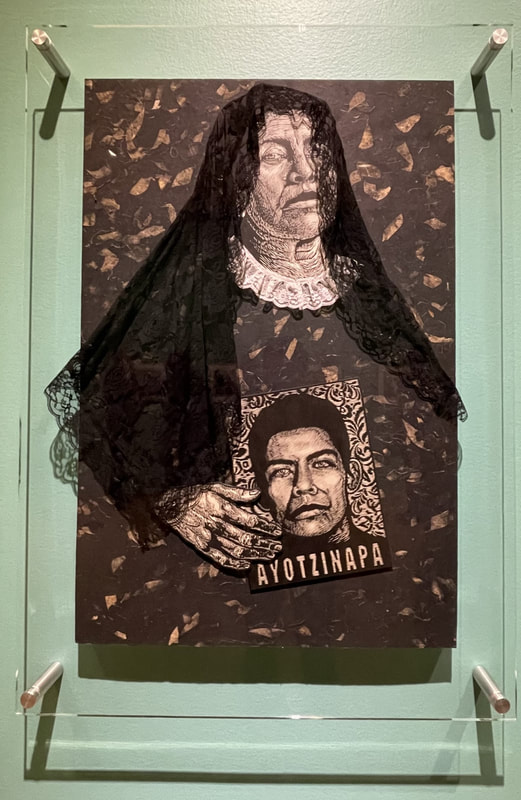
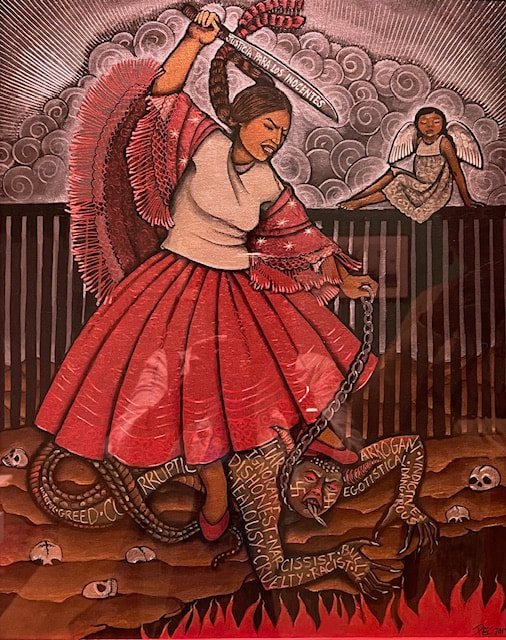
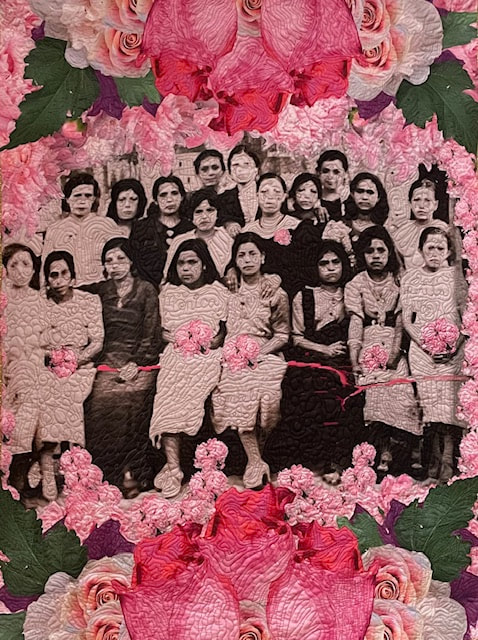
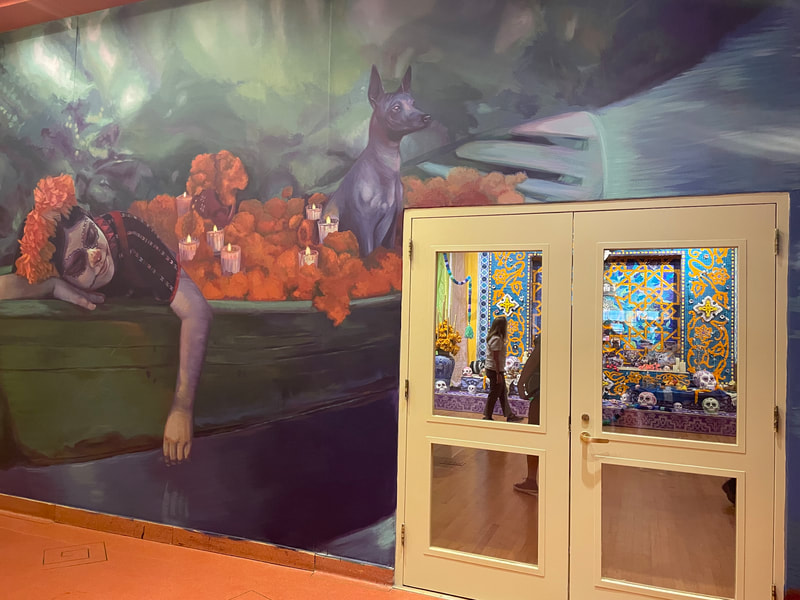
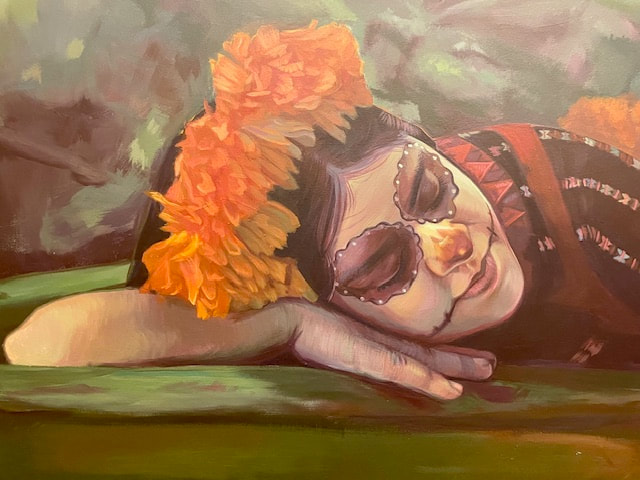
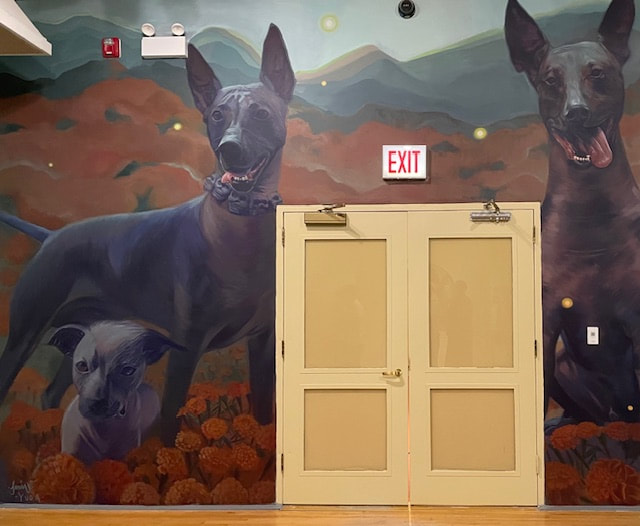
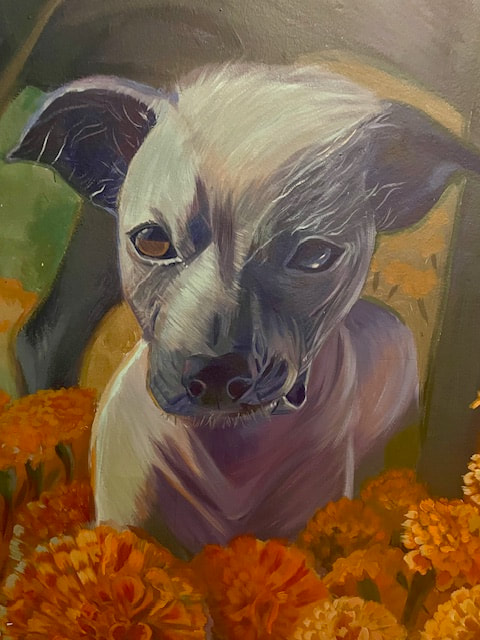
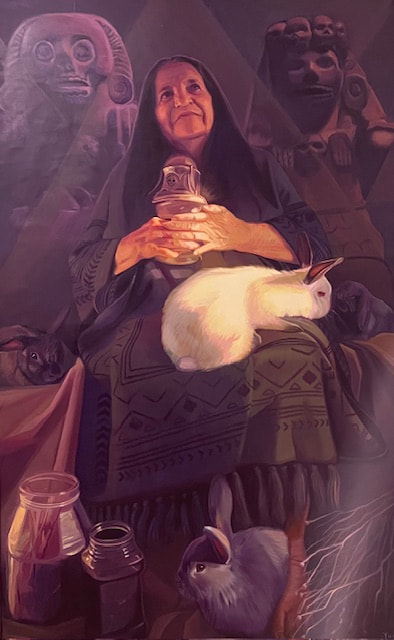
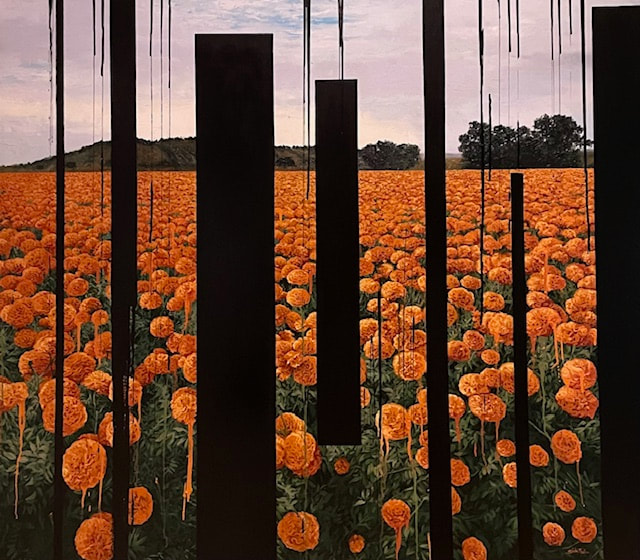
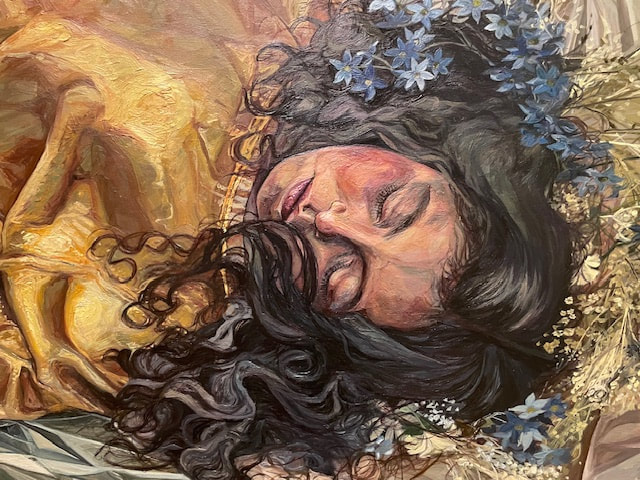
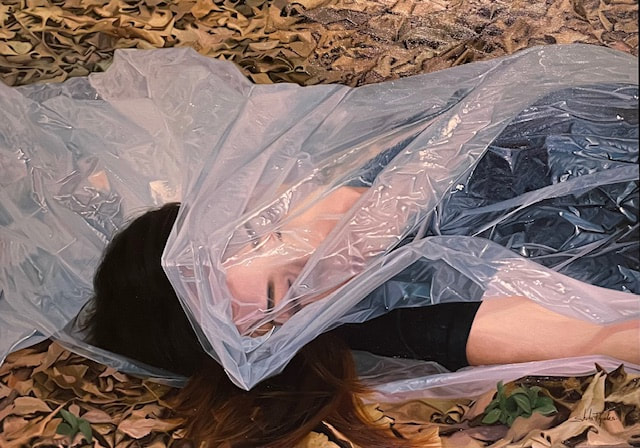
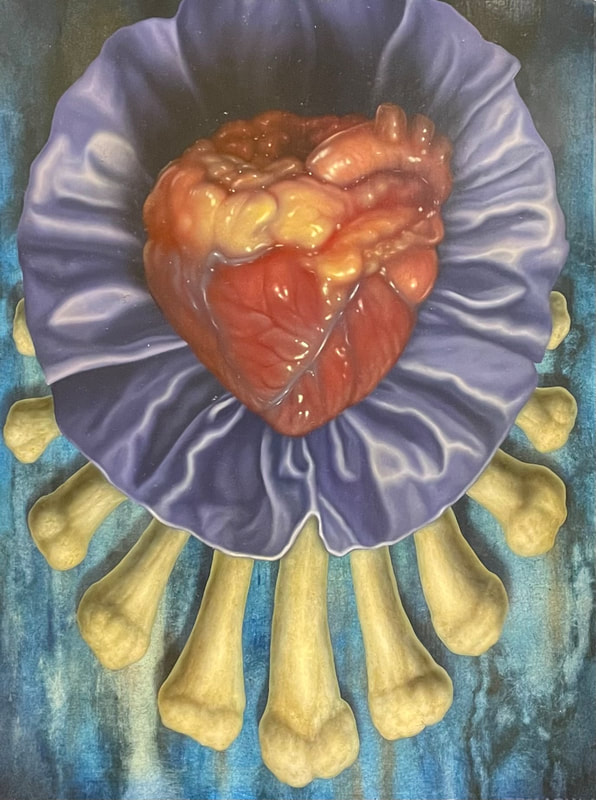

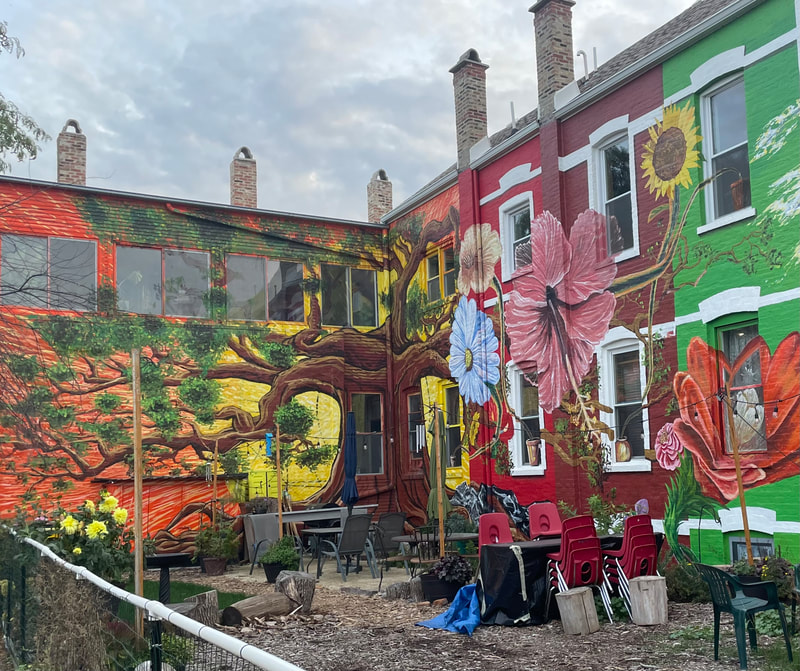
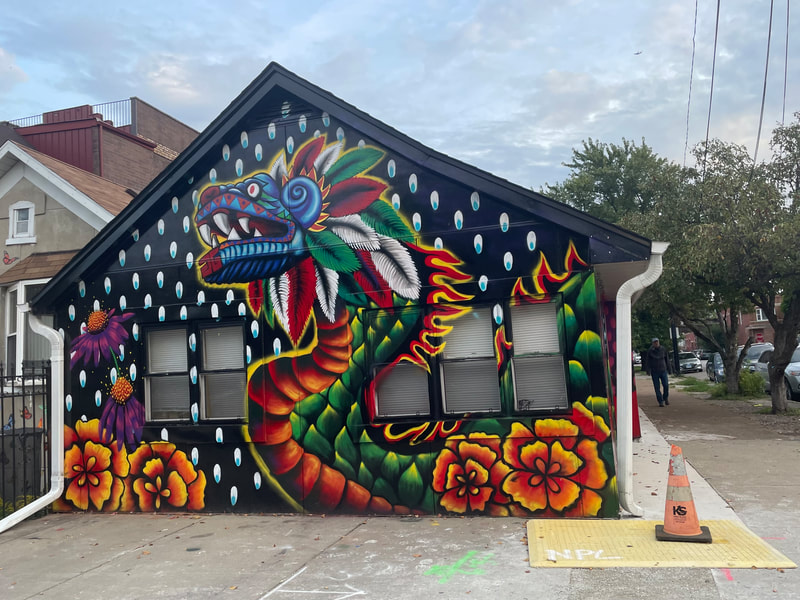

 RSS Feed
RSS Feed